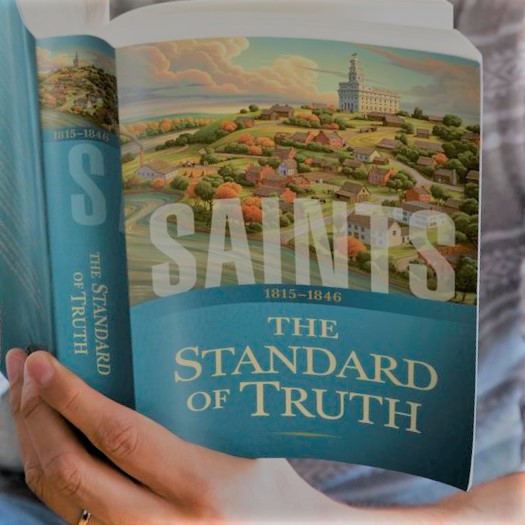S A I N T S: “LOSING YOUR MEMORY IS ALWAYS BEST – PART 1”
Although I can’t give a full-throated endorsement of “Saints,” I certainly can give one for the following article. To be sure, I find “6 Reasons Why You Should Read the New Church History Book, Saints” by Marianne Holman Prescott (Church News staff writer) to be essential reading:
In a failed attempt to dissuade the membership at large to ignore the book for intellectual dishonesty, the church instead turns to “amnesia” as a better solution to history. It’s why I find this article to be essential reading, as it really sets the entire scene for this 4-volume excursion into their “Condensed Reader’s Digest Version” of the past.
Background: One of the contributors to “Saints” is Steven Harper, a church historian. Steven had the unfortunate experience of suffering through amnesia after “an infection in the tissue around his brain.” He then fully recovered (presumably), to be highlighted on the church’s website as a historical warrior for being able to work from a clean slate… I’m not making this up.
It reminds me, in part, of how Bruce R. McConkie was asked to back-peddle about his firm stance against blacks and the priesthood, stating:
“Forget everything that I have said.”
Sermons & Writings of Bruce R. McConkie (Salt Lake City, UT: Bookcraft, 1989), 132.
I will list the six items individually (first two here), then present observations of my own. This is not meant to disincline the examination of “Saints,” instead, it is meant to reinforce the grim notion many of us are keenly aware of, yet the faithful are incapable of acknowledging: Faith can never be the antidote for truth.
1. “We aren’t Latter-day Saints if we don’t remember what makes us Latter-day Saints. There is a link between knowing ‘who we are’ and ‘whose we are,’ he said. People without memory are unaware of who they are and where they came from. Without that understanding, knowledge of the greater plan of salvation is incomplete.”
One of the themes of this article is to persuade you to believe that ‘unlearning’ the past is good. Although it seems to be hinting at the advantage of relinquishing bias, it never succeeds in explaining how to do it. Item #1 immediately convolutes the scene by explaining that people without memory have lost their sense of direction, thus, misunderstanding the plan of salvation. Wait. Weren’t we just taught that starting with a clean slate was a good thing?
2. “Past histories aren’t helping us remember our story. Past Church histories are really good for what they are and when they were composed, Harper said. This new history is meant for Church members today, to help them with present-day problems. ‘One way to think of Saints is as a collective memory of all Latter-day Saints, the knowledge that we share or will share in common that makes us one and gives us our existence as a group,’ he said. He called it a ‘happy marriage between accurate history and narrative storytelling.’”
Item #2 attempts to challenge the notion that raw historical data can inspire a modern world. In what is perhaps the most telling sentence of this entire article (the final one), we’re told that a combination of fact-and-fiction is better than truth: “He called it a ‘happy marriage between accurate history [is he saying it was ‘inaccurate’ before?] and narrative storytelling [fiction].’” The irony is that this is a perfect description of how leaders edited historical data in the past, so apparently, why not stretch the truth further?

